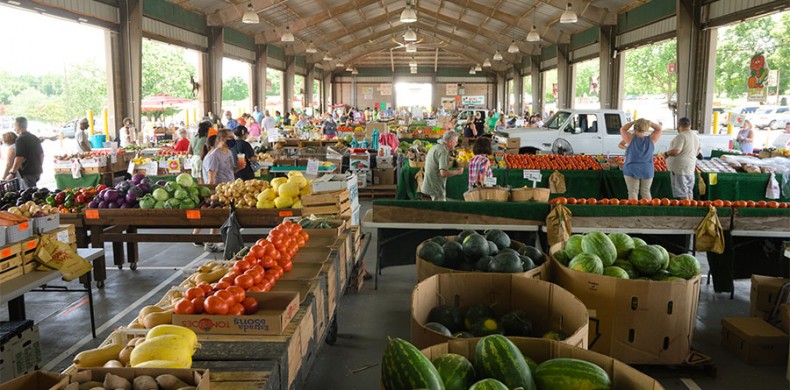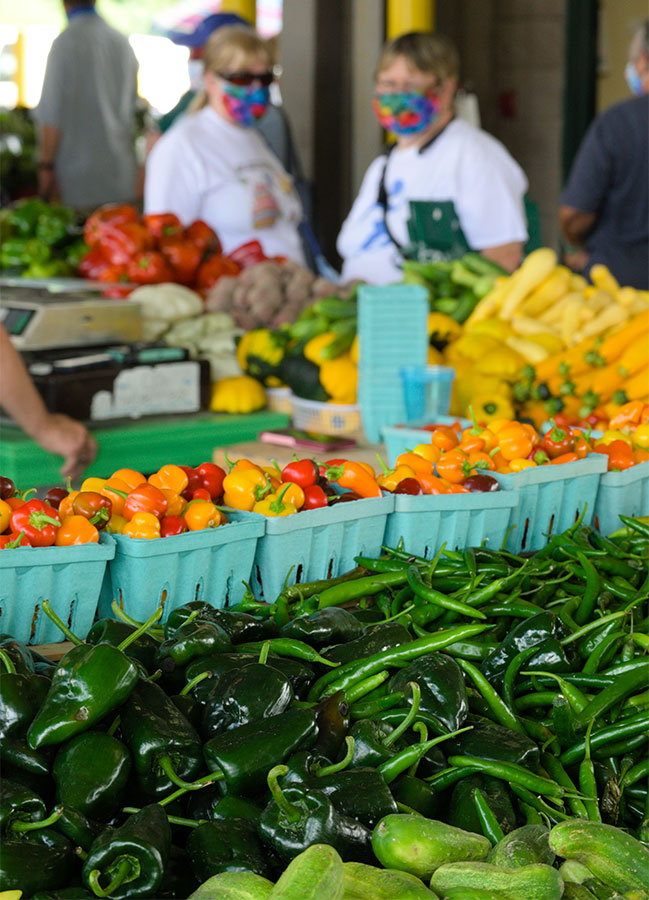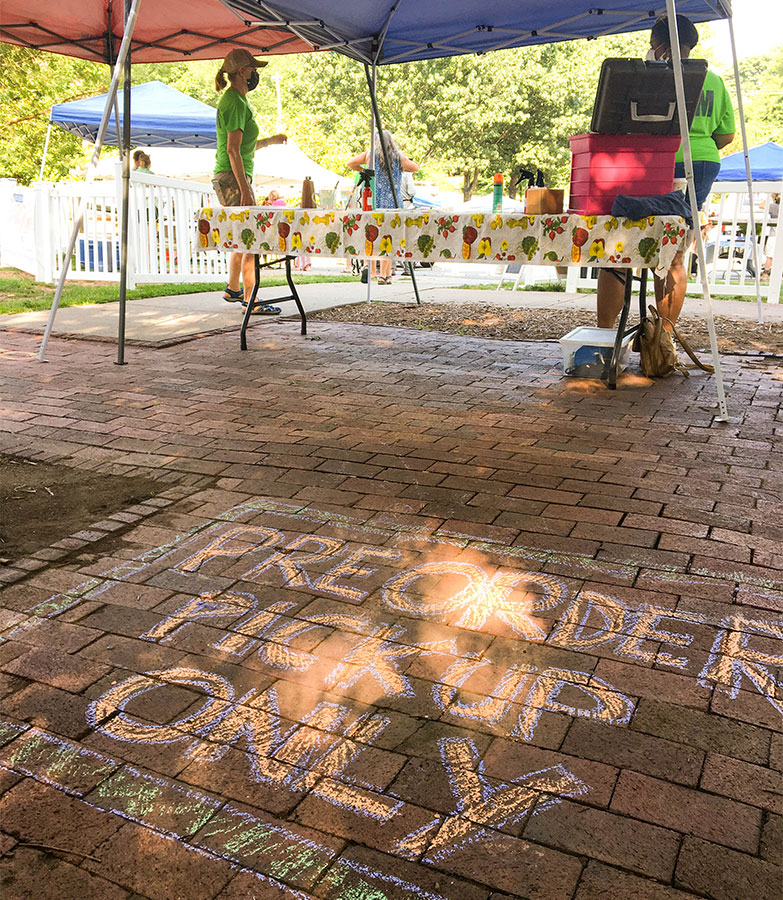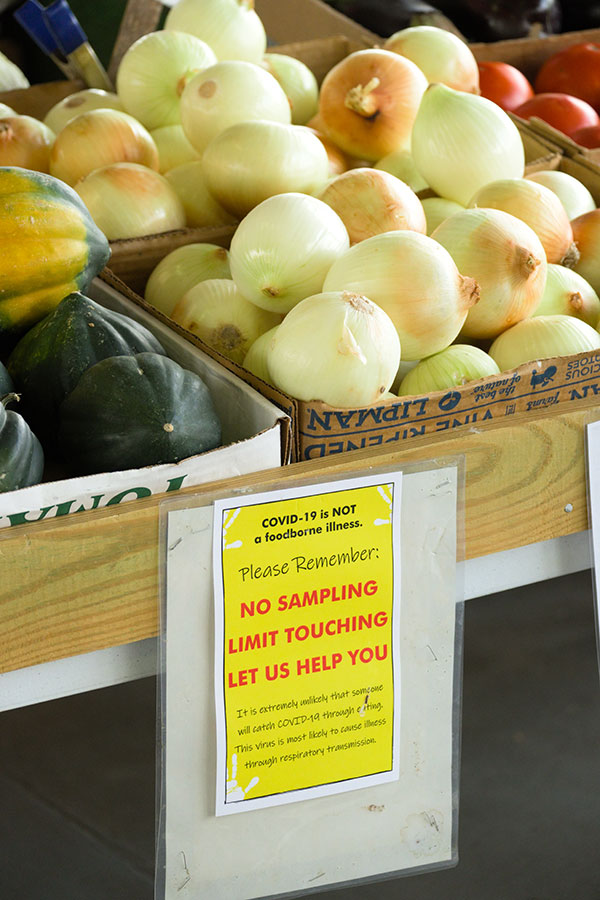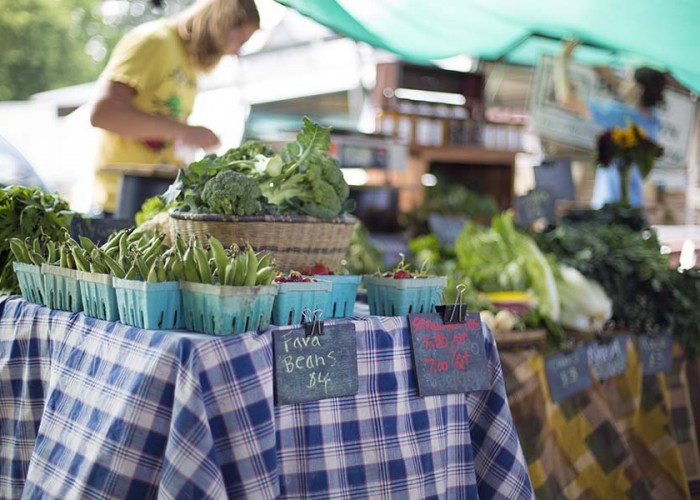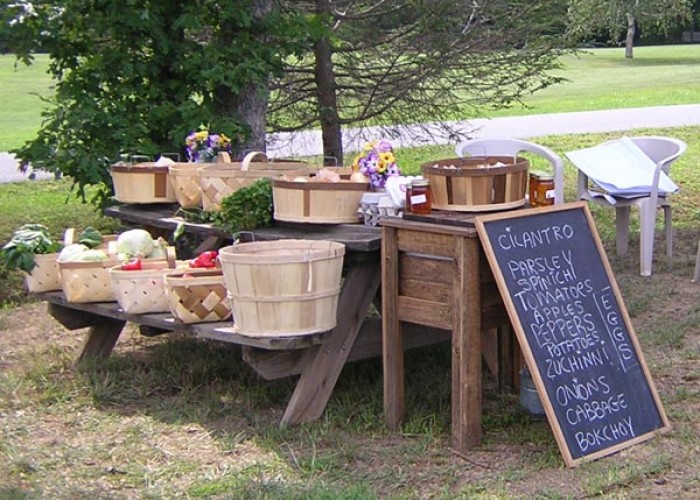Adapting to Provide Safe, Essential Produce
Farmers markets are continuing to serve communities during the pandemic.
By Leah Chester-Davis By | Photos by Randy Berger Photography unless otherwise notedA cadre of volunteers, all wearing masks and matching T-shirts, are directing foot traffic on a sunny Saturday morning in late June at the Davidson Farmers Market. Arrows chalked on the sidewalk also provide direction toward a single entry point to the market. Only those who have pre-ordered and are wearing masks are allowed into the cordoned-off space.
Social distancing reminders and directional guidelines help ensure the traffic flow through the market proceeds in a manner that prevents any congregating.
It’s a stark contrast from the pre-COVID lively market that drew the community together as folks shopped the numerous market stalls and chatted with neighbors and local farmers.
This is the first day a small number of farmers are back at the market’s regular site. They plan to use this model for a couple of weeks before reopening the market. For the previous couple of months, farmers at this market had pivoted to a drive-through model where customers pre-ordered and then drove through a designated area where farmers could simply load the produce, meat or other farm products into their customers’ cars with little contact.
Farmers markets are classified as essential businesses in the state, meaning they could remain open. Many, however, are overseen or regulated by municipalities, several of which closed markets or went to a drive-through or other model until safety protocols could be in place.
Expert advice
The Carrboro Farmers Market has remained open throughout the pandemic, quickly implementing safe practices. Early on, the farmers market board turned to an expert for advice.
“We hosted an infectious disease specialist, Dr. Peter Gilligan from UNC, who is also a market regular. He provided us with a wealth of advice for how to safely operate and stay open,” says Market Manager Maggie Funkhouser.
"When this went down, people still came to the market and supported these local, small family-owned businesses.”
“What he emphasized is now the script for the state and the country. Social distancing, keeping your hands clean, not touching your face, sanitizing surfaces a lot and not giving customers a reason to spend as much time at the market as they ordinarily would,” Maggie says. “We canceled all of our events and didn’t offer things like onsite, ready-to-eat foods.
Most things are prepackaged now. We are not a pre-order market, but we encourage folks to pre-order and pre-pay whenever possible.”
They also reformatted the market and developed a one-way flow pattern. While socializing and milling around is a favored feature of most markets, Carrboro, along with most other markets, now encourage customers to “get in, get out and get home!”
Adapting in phases
The year round, state-run farmers markets in Raleigh, Greensboro, Charlotte and Asheville have remained open all along, though in early March they made significant modifications.
“We had to drastically limit the number of vendors,” says Amie Newsome, Charlotte Regional Farmers Market manager.
The market spaced booths 36 feet apart during the state’s “Safer at Home Phase 1.” That allowed only 25 percent of their regular number of vendors. During Phase 2, they spaced vendors 12 feet apart, which brought them to half capacity in terms of vendors.
“We’ve had all the garage doors open for our enclosed buildings so people could enter and exit freely. People aren’t confined. We put up signs and we put markers on the ground to show people how far 6 feet was,” explains Amie. “It has been very challenging on all fronts.”
The Charlotte market offers both regular market shopping and curbside pickup, depending on the vendor. Several of the farmers transitioned to curbside or online stores so people could pre-order.
“This was really new to a lot of the vendors,” Amie says. “This took more time because they were having to not only do their field work, but they would come in at night and have to do all the online stuff, getting prepped for spacing, collecting all the different items for different customers who were requesting curbside pickup. It affected them greatly.”
Resilient support
While both market managers speak to the numerous challenges and difficult decisions they’ve had to work through and continue to face due to COVID-19, they also point out glimmers of hope.
“We really found out how strong the connection of our vendors and customers was because when this went down, people still came to the market and supported these local, small family-owned businesses,” Amie says.
“Even in this difficult time, I’ve really noticed and appreciated the resilience of our farmer, business and customer community,” Maggie says. “It’s really been very encouraging to me — the strong sense of support and resilience that I feel with the farmers I work with. It makes me feel like if we can make it through this, we can make it through anything.”
Eat Fresh, Buy Local
With more than 250 farmers markets across North Carolina, there’s a good chance you’ll find one just down the road. A market directory and guide to what fruits and vegetables are in season is available at ncfarmfresh.com.
You can also visit one of the four larger regional farmers markets, operated by the NC Department of Agriculture and Consumer Services.
- Western NC Farmers Market, Asheville
- State Farmers Market, Raleigh
- Charlotte Farmers Market, Charlotte
- Robert G. Shaw Piedmont Triad Farmers Market, Colfax (near Greensboro)
-
Let's get farm fresh
-
Share this story:

